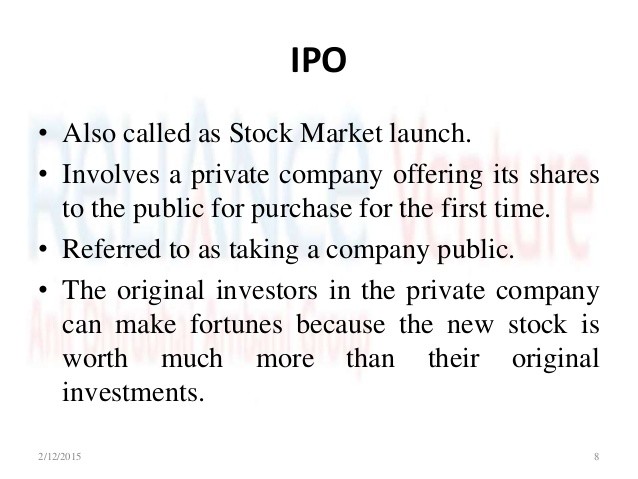Stock Market Exit Strategies
Post on: 16 Март, 2015 No Comment

As a long-time stock market investor, Ive always had a key big picture question about equities. And I suspect other long-term investors have pondered the same issue. That issue, as best I can state it, is as follows.
Were encouraged as market investors to be in the market for the long run in the quest for gains not found elsewhere. Yes, theres risk involved, but the key is to not worry about the ups and downs of the market. were told. As long as we have a lengthy period over which to invest, we should come out ahead.
Yet at some point as we near retirement, we simply dont have a long period ahead of us anymore to absorb the inevitable downturns. We have to turn to safer investments. The alternative is to risk a plunge in prices just before our Golden Years, one that could effectively deep six most or all the gains weve enjoyed.
If this is true, whats the best exit strategy? Do you start to move out of stocks five years before you need to start living off your assets? Or 10 or 15? And where do you put that money once you do wave bye-bye to stocks?
I recently put these questions to a trio of retirement investing experts, expecting them to voice the same, or only slightly different versions of a tried-and-true, time-tested, handed-down-from-on-high approach to exiting the stock market. What I got instead were three markedly different philsophies.
Take what you will from these strategies in the hopes of sleeping soundly at night, particularly as you grow closer to the moment when you have to trade the potential of nice gains for the comforts of knowing your retirement nest egg is comparatively secure.
Consider your job, pension
According to Toronto-based Author Moshe A. Milevsky, whose recent book is The 7 Most important Equations For Your Retirement (Wiley 2012), the question isnt when you should exit, but whether you should.
Milevsky argues those with stable jobs that include pensions, such as city workers and teachers, in essence already have retirement money in safe, stable investments. As a result, they face less need to exit the stock market as they approach retirement.
However, those whose jobs are dependent on the stock market should not have too much equity in their portfolios. Ask yourself this question to help decide whether your job is sensitive to the stock market, Milevsky says. If the S&P 500 plunged by 25 percent this year, would that have even the slightest impact on your job?
Some people exist in in a gray area, and cant answer with certainty, he says. But many more can answer unequivocally. If your job isnt affected by the stock market, you dont have to exit.
A pair of pails
Many people think of retirement as a fixed age. says Chandan Sengupta, an investing and finance instructor at Fordham University in New York City. Thats wrong, he argues. Instead, you should focus on that moment when you stop depositing money youll need for later years, and start withdrawing that cash.
Sengupta believes that before you get to that point, you should accumulate enough in fixed income accounts to cover expenses for 10 to 15 years. The remainder of your money should be in the stock market.
How you proceed in your later years will be determined by stock market performance year by year. In years when the market is relatively low, he says, use your fixed income pail to fund your life. In years when the market is comparatively high, withdraw enough money from your stock market pail to fund your life. If the market is skyrocketing and your holdings are therefore comparatively robust, tap some more of those profits to replenish your fixed income pail.
The key is to not sell stocks when the market is low, but to take all you need and then some from the market when it is comparatively higher, he says.
Income-paying equities
In the old days, investors used to view the bond portions of their portfolios as providing income and reduced volatility. Those days are gone. US Treasury bonds and corporate bonds both provide very little income. And as interest rates rise, long-term bonds are likely to deliver some unwelcome volatility, says Peter Tanous, president of Lepercq Lynx Investment Advisory in Washington, D.C.
The result? Most retirees will have to tolerate equity risk in retirement, but that risk will be altered. They will have to focus on income-paying equities, like quality funds of preferred stocks, which today offer yields of around 6.5%. Yes, such equities could be hurt along with everything else in a market crash, but theyll continue to pay a dividend as long as their underlying companies remain healthy, Tanous says.
Master limited partnerships owning oil and gas pipelines are another option, he adds. Similarly, they could be hurt in a stock market freefall, but what the retiree wants to know is whether his or her dividend will be paid. And it will be as long as gas and oil continue to flow through those pipelines, Tanous asserts.
His suggestion is to remain in the market, but shift money from riskier stocks and funds, and into funds of preferred stocks. master limited partnerships, and even slower-growing equities. Most people will continue to need to absorb some risk in order to generate the income they need to survive, he says.
There you have it. As you get nearer retirement as a stock market investor, avoid searching for the exit signs.
The expert advice to many investors is not to exit at all.
Published on July 10th, 2012














